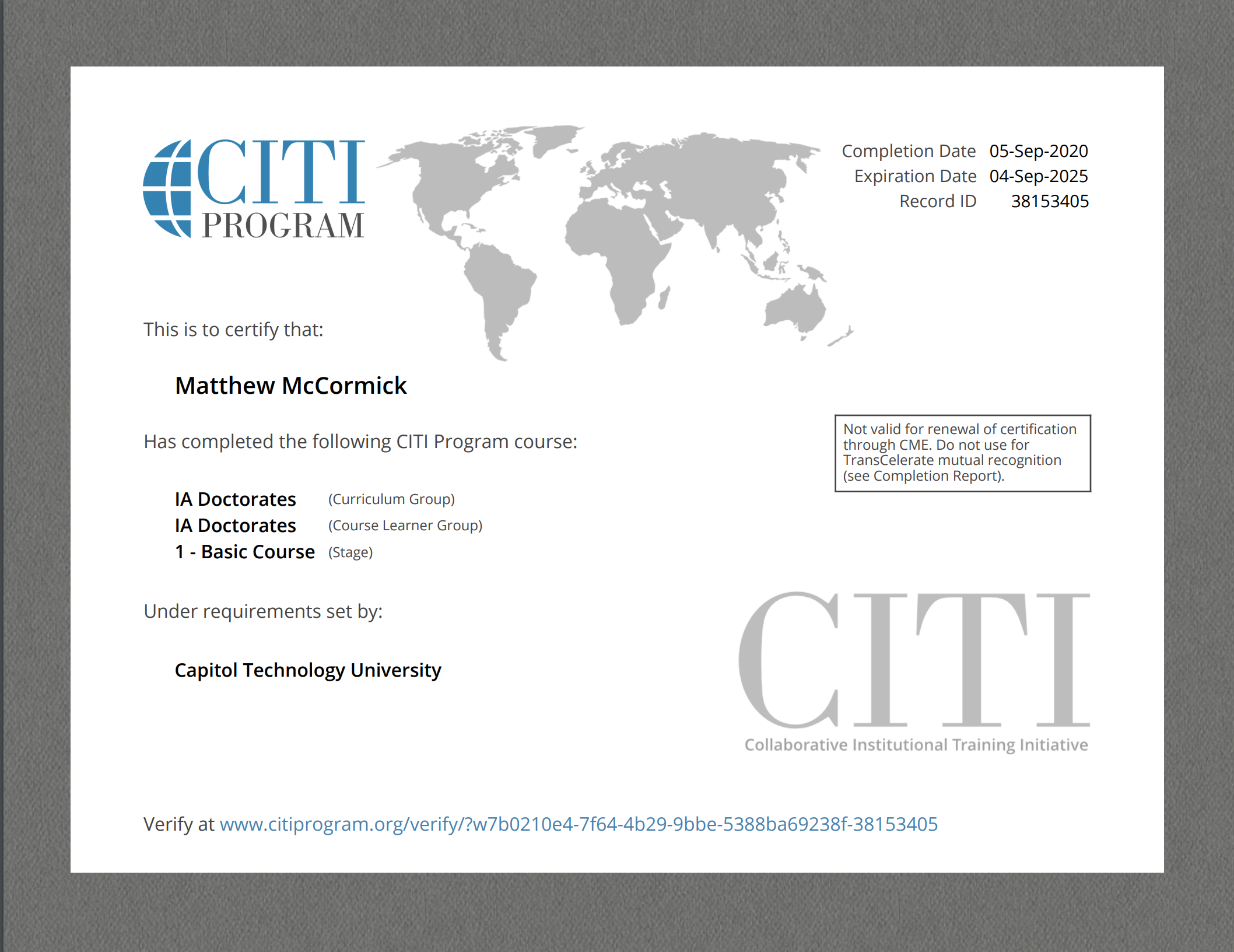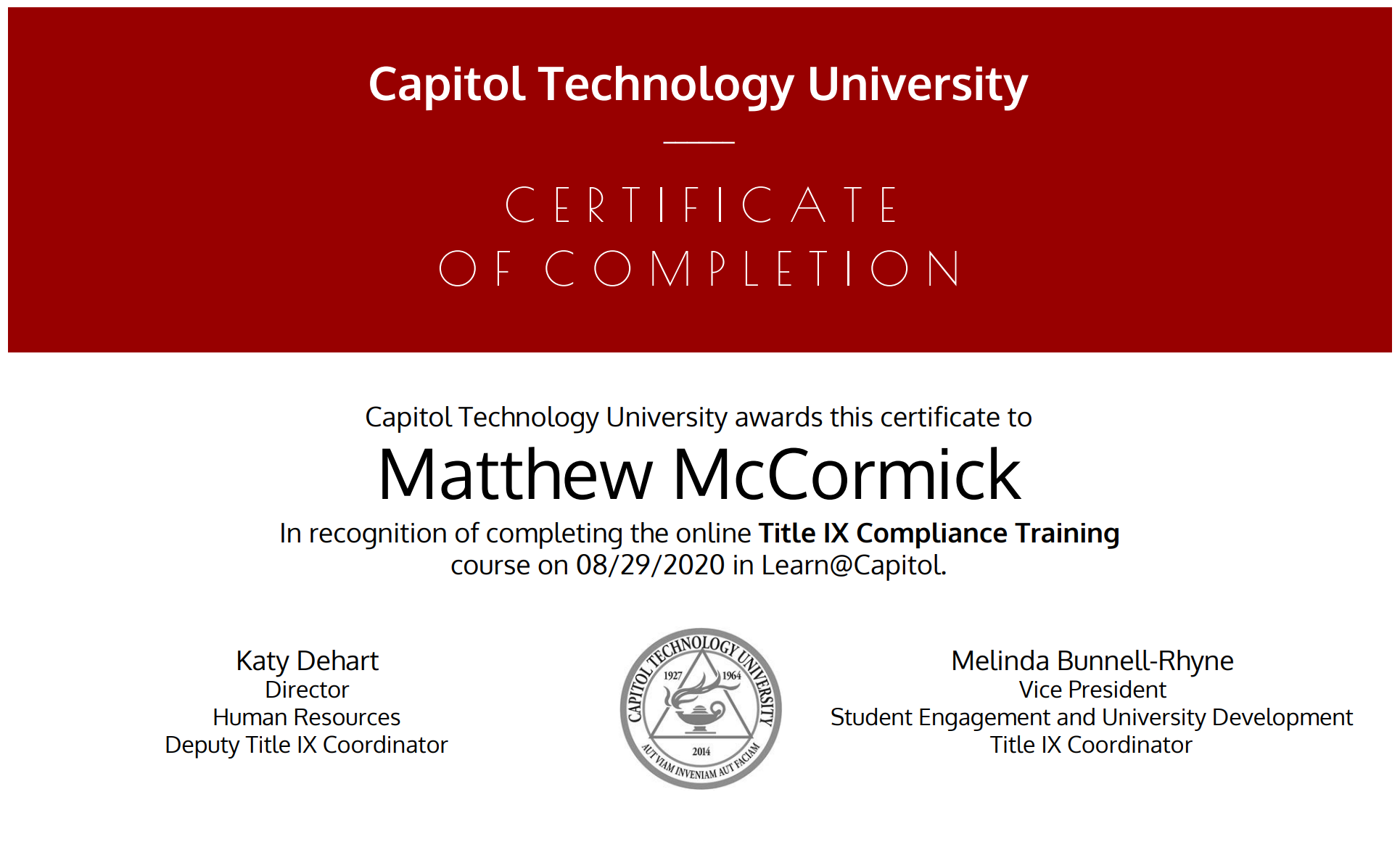
-please click on the image for greater detail

-please click on the image for greater detail
All posts by magister
Non-traditional student
What I do has been given many titles: Professor of Practice, Teaching Professor, Clinical Professor, Instructional Professor. I am not a classic academic, although I do research.
My intentional student has always been the non-traditional student. Why? Because I have never felt greater, more immediate power to effect social change than when I teach. Not merely in the information I may impart, but in the professional behaviors I may teach. The disciplines of maturity and scholarship. Many students I teach may not have had a professional in the home growing up, so how can we begin to expect them to understand professional behavior? Why and how?
When a student gets angry at me, rarely, I make them an offer. Let’s not do this now at the beginning of class. I have to start class. Come see me after class is done and let’s make an appointment to discuss this. Come see me in my office during office hours and let me show you how to disagree with your boss and not get fired. Then, I will reconsider your grade (and, likely improve it if they accept my offer).
I am a first generation college student. We didn’t have a dictionary in the house when I was in grade school, and I am the youngest of six. My parents had to buy me a dictionary because I needed it and wanted it for school. Lovingly, my parents and my brothers would make fun of my interest in school.
I refuse to allow in my classroom what call “Stinkin’ thinkin'”. I can’t. I’m not good enough. I don’t have what it takes. Others are better than I am. They belong here. I don’t. “Imposter syndrome”, call it what you like. I don’t allow, and I will pause whatever is going on privately, and make the student say, in the words of the (joke) great Dr. Stuart Smalley, who teaches at SNLU, “I’m good enough. I’m smart enough. And, gosh darnit, people like me.” They don’t get the points until they say the magic words. And, when the bad habit rears its ugly head again, the magic words, or no points.
When I took my students on a field trip to the Motorola system staging area where they could see all the engineers integrating all the equipment before shipment, one of my students paid me a great compliment and said, “Mr. McCormick, that was tight.”
I’m not joking. This is my job.
Peregrine Write & Cite APA
CITI Program – IA Doctorates, Basic Course
9 UW-Madison fraternities, sororities ordered to quarantine to stop spread of COVID-19
-by Matthew Cash
MADISON (WKOW) — Members of nine fraternities and sororities at UW-Madison have been ordered to quarantine at their off-campus live-in chapter houses following confirmed cases of COVID-19 among their members.
Out of about 420 members in the 9 chapters, 38 tested positive as of Sept. 2, according to a UW-Madison press release. As a precaution, all other members will be required to be tested on Sept. 8 at a university testing site.
Members who have previously tested positive within the last 90 days through a verified lab result and are not currently in isolation do not need to test or quarantine. Proof of a previous positive must be submitted to UHS at him@uhs.wisc.edu for verification.
“Our goal is to stop any further spread of the virus among our students and the broader community,” says Jake Baggott, executive director of University Health Services. “We’re working closely with county health officials, student leaders, chapter advisors, and the housing corporations that own the chapter houses to address this quickly and thoroughly.”
A violation of isolation or quarantine order may result in a fine of up to $10,000 or a court order to comply. Failure to comply also will result in university sanctions against students who violate a quarantine directive.
Out of a total of about 5,000 students who are in Greek life, about 1,500 live in off-campus greek houses.
“Given the sheer size of some of these fraternity and sorority chapter houses, some having over 50 household members, we felt that Public Health orders were important to ensure compliance and contain the spread of COVID-19,” in a statement provided to 27 News by PHMDC.
Students upset as UVA forces hundreds to relocate, abandon housing plans: “The overall feeling was betrayal”

-please click on the image for greater detail
-by Riley Wyant | September 1, 2020 at 8:36 PM EDT – Updated September 1 at 8:49 PM
“CHARLOTTESVILLE, Va. (WVIR) – With COVID-19 cases within the University of Virginia community continuing to rise, the school decided to convert four additional dorms into quarantine housing over the weekend.
The last-minute decision left hundreds of students, including those in the International Residential College (IRC), Johnson, Malone and Weedon Houses and Shea House, only 24 hours to find an alternative.
Students are bewildered and wish the administration handled it better.
“The overall feeling was just betrayal honestly,” IRC Prime Minister and student Charmi Patel said. “Of course we were frustrated, but also we were just deeply saddened that UVA took this action without giving any prior notice.”
“The reassignments were all across grounds,” another IRC student Soumil Madhiwala said. “You could put your preferences, but where you get placed would be obviously random.”
IRC students including Patel and Madhiwala were left wondering: Why this wasn’t this decided earlier and why their room assignments?
UVA declined the opportunity to be interviewed but provided a statement saying this decision was made in ’real time’ as they learned from the mistakes of other universities and consulted with public health experts.
For students like Patel, this knee-jerk decision raises larger concerns. “If they’re already worried about making new spaces for quarantine housing, what does that really mean about UVA’s ability to welcome students back safely?”
The university’s administration claims they made the decision based on the low occupancy of IRC housing, which stood at below 35%.
For Madhiwala, the low occupancy was the main reason he opted to return to grounds. “But then things unfolded over the weekend and I started to look at more of the coronavirus stats that were coming out with UVA,” he said. “I made a decision that I would just cancel my lease and do virtual instruction isolated at home.”
Now, he’s worried about his friends who are still caught up in the mess. “It’s very tough for them because some of them absolutely hate where they’ve been reassigned,” he said.
“There’s nothing that housing can do for them because housing didn’t make this decision. It was the UVA executive team that made the decision,” Madhiwala added.
While both students understand the low occupancy reasoning behind UVA’s decision, they wish they would have given them more time and not targeted their multicultural community.
“We have a lot of international students and tearing apart this multicultural community was sort of the opposite of what they could do to help the situation that’s going on at UVA and in our country,” Patel said.
Copyright 2020 WVIR. All rights reserved.”
UVA’s Full Statement regarding the situation:
“Since the Fall 2020 committee was formed in May, the University has been planning to have a number of isolation and quarantine spaces for students who test positive and for students who are exposed to those who are positive. The very recent experiences of other colleges and universities informed our decision to increase the number of such spaces on Grounds. The dorms identified have relatively low occupancy and afforded us an opportunity to consolidate residents and free up vacant rooms for isolation and quarantine use. This decision was made in real time as we were learning from other universities and consulting with our public health experts.
As the University’s senior leadership and the Fall 2020 committee deliberated on the decision that was announced yesterday afternoon, many across Grounds worked to increase our isolation and quarantine space. The Office of Housing & Residence Life surveyed existing residences, identifying those with low overall occupancy and suited to isolation and quarantine. We also identified alternative places for those residence staff and students to live.
This decision needed to be made quickly and was made after consultation with the Provost, the Chief Operating Officer, and the Vice President and Chief Student Affairs Officer. The decision to stay the course this semester was announced late Friday, and Housing & Residence Life made every effort to provide the notice that they could to resident assistants, to consult SDAC, and notify students living in these residences. All impacted RAs have been assigned to new RA rooms elsewhere on Grounds. This was a difficult decision and we wish it were otherwise.
Of the 4,400 students living in our residences, this decision impacted a couple hundred students. While the decision was abrupt for many of them, most have been understanding given the circumstances and the need to designate additional isolation and quarantine space. The University will do everything it can to manage the transition for RAs and students, and to welcome them into their new residences.
A few additional details:
- There is adequate space to accommodate all impacted students on Grounds. Students have been given an opportunity to share their preferences for reassignment through the housing portal, and Housing & Residence Life will make every effort to accommodate those preferences.
- The occupancy of each dorm converted into isolation/quarantine housing was below 35%.
- IRC, JMW, and Shea House residents who cancel their 2020-2021 housing contracts will not be charged housing fees, as long as they contact HRL”
M.B.A.s Are Usually Swimming in Job Offers by Now. Not This Year.
-by Patrick Thomas
“Business school students are bracing for an uncertain job market this coming school year as many traditional corporate recruiters shelve their usual fall hiring plans.
At a time of year when many business school students are polishing their networking skills and getting their business haircuts, a number of big companies, including consulting giant PricewaterhouseCoopers, say there will be no jobs on offer to second-year M.B.A. candidates, beyond those who interned this summer, looking to lock down a position before they graduate.
The murky job market has both students and schools worried. M.B.A. students can pay $200,000 or more to attend some of the most elite programs, once two years of living costs are factored in, for the promise of an accelerated career and higher salary. Schools market strong job-placement rates to prospective students; those rates ranged between 80% to 90% for many highly ranked programs before the pandemic hit.
PwC said it has no plans to hire up to 100 second-year M.B.A. students as it usually does each fall. This year, only those who had summer internships with the firm got job offers this month for positions that will start after graduation in the spring of 2021, said Rod Adams, the U.S. recruitment leader at the company.
“Those that have interned with us have generally performed better when they start full-time,” he said. “You are not starting from ground zero.”
Other companies say they are taking a wait-and-see approach. Consulting giant Bain & Co. is reducing the number of second-year M.B.A.s it plans to hire but has made offers to this summer’s entire M.B.A. intern class, said Keith Bevans, a partner who leads recruiting for the firm. Because of job market uncertainty, Mr. Bevans said he expects a higher percentage of interns than usual to accept.
EY, one of the largest professional services firms in the world and the umbrella organization for its U.S. affiliate, Ernst & Young LLP, is waiting to see how a potential second wave of Covid-19 infections plays out before it finalizes hiring plans for the year.
“In a normal year, we’d have everything buttoned up and schedules set, we would have already been on campus in several places,” said Dan Black, global recruiting lead for EY. “The next four to five months are going to determine a lot of things.”
While EY’s M.B.A. hiring is uncertain, the firm plans to make a lot of job offers to undergraduates, who typically take roles in tax and assurance when they graduate, Mr. Black said. Those units involve annuity work that needs to be done regardless of what is happening in the broader economy.
“M.B.A.s primarily fill roles in consulting and strategy and transaction, which tend to have more project work that is affected more by the relative strength of the economy,” he said.
Kevin Stacia, an M.B.A. career coach and corporate-relations manager at Georgia Tech’s Scheller College of Business, said students and employers are stuck in limbo for now. “Nobody is making commitments yet,” he said.
Mateusz Madry, who is working to complete his M.B.A. at Suffolk University’s Sawyer Business School in Boston, said he pursued a business degree to kick-start a career in digital marketing. But he struggled to land an internship this summer and instead worked at the university.
“The job search for us M.B.A.s is so important in terms of connections and getting to know people. When Covid[-19] hit, I feel like I lost those connections,” the 30-year-old said. “All of us are entering into this unknown in the fall. It’s a hard time for everyone.”
Students who weren’t able to land a summer internship—or had their offer rescinded—fear they could have a tough time finding the job they thought the pricey degree would give them upon graduation. RelishCareers said in a recent survey more than a third of 2021 M.B.A. candidates have had job and internship offers rescinded or changed because of the pandemic, compared with about 20% of M.B.A.s who graduated this year. The survey found offers extended to the class of 2021 have been hit hardest by the pandemic because companies consider internships less essential in an emergency.
Several big companies, including McKinsey & Co. and Boston Consulting Group, had already pushed back the start dates for spring graduates who expected to begin full-time roles this summer. Many who had locked down summer 2020 job offers back in the fall of 2019 are still waiting to hear when they can report to work. PwC says some new employees may not start until November.
A recent survey of more than 1,000 employers found that companies across an array of industries planned to hire nearly 60% fewer management positions this year, shrinking the number of landing spots for newly minted M.B.A.s along with other white-collar workers, according to the Association of M.B.A.s and Business Graduates Association, one of the three main accreditation bodies of business schools, which conducted the research.
Some sectors, including retail and tourism, have been predictably hard-hit by pandemic closures, which has curbed their ability to hire, survey respondents said. Other sectors were a surprise. Logistics companies, for instance, who are riding a pandemic-fueled surge in e-commerce to higher profit and revenue, reported some of the largest management hiring drop-offs.
“Some blue-chip organizations that every year took a few M.B.A.s into their cohort might take a break for a year,” said Andrew Main Wilson, who runs the Association of M.B.A.s. “Many companies feel if they are being responsible, the first thing they’ll stop is recruitment and save existing jobs of good employees.”
More than half of respondents in banking, energy, engineering and construction said they were hiring fewer leadership roles in 2020 compared with 2019, and nearly two-thirds of organizations polled in legal services and pharmaceuticals said they were in the market for fewer managers this year. In contrast, about a fourth of companies polled in insurance, entertainment and computers and electronics said they planned to hire more management roles.
As traditional M.B.A. employers in consulting and financial services dial back recruiting plans, new employers in technology are emerging to fill the gap, said Raj Echambadi, dean of Northeastern University’s D’Amore-McKim School of Business.
“We are hoping the losses in traditional industries can be actually taken care of by different types of organizations,” he said.
Amazon.com Inc. and Microsoft Corp. started their B-school recruiting process for jobs and internships earlier than ever before and indicated they plan to make more job offers to second-year M.B.A.s than usual, according to Drew Pascarella, associate dean of M.B.A. programs at Cornell University’s SC Johnson Graduate School of Management.
Among M.B.A. pursuers is ServiceNow Inc., a cloud-computing company that launched its B-school intern program last year and next spring aims to hire about 10 to 20 additional M.B.A.s than it did this past year.
“This is a long-term commitment,” said Chirantan CJ Desai, ServiceNow’s chief product officer, who manages the company’s B-school hires. “M.B.A.s help us create better products. I’m optimistic about the graduating class of 2021.”
Students’ Summer-Internship Plans Evaporate Amid Coronavirus Pandemic
-by Patrick Thomas
April 22, 2020
“As companies continue work-from-home edicts, many students see their offers rescinded; ‘It’s demoralizing’
Alexandra Pirsos, a junior studying marketing at Elon University in North Carolina, had been planning to intern for Wayfair Inc. since October. Last week, the online purveyor of home furnishings canceled its summer program.
Ms. Pirsos, 21, joins a growing cohort of college students who have had their summer-internship plans quashed or shortened to just a few weeks of online work experience amid the spread of the new coronavirus, which has sent millions of employees home to work remotely.
While college seniors from the class of 2020 now face graduating into a recession in May, students with more time left in school are adjusting their career plans as internships crucial to their future professional development disappear. Internships can be valuable to college students who use them to build their résumés and develop an industry network—and often lead to full-time job offers.
“Knowing I won’t have that opportunity to network, to learn, to grow but then to also possibly have a job after I graduate is definitely scary and unsettling,” Ms. Pirsos said. “Online school is over in three weeks, and I have no idea what the future holds.”
Jasmine Cadavez, 20, is a sophomore at the University of Pittsburgh and plans to graduate next spring. Because she is finishing college a year early, she is frustrated that her internship at a regional bank was shortened several weeks because she said it was critical to remaining competitive in the job market.
“It’s out of my control,” she said. “There’s nothing I can really do.”
An April 17 survey of companies from the National Association of Colleges and Employers reported that 16% of respondents had revoked their summer-internship offers and an additional 23% were considering rescinding them. The poll also found that 39% of employers are planning to move their internship program completely online.
For two-year graduate students, internships lead to full-time jobs after graduation or provide crucial experience for career switchers.
“We are late in the internship recruiting process now. Many employers have filled all of their opportunities and are no longer accepting applicants, which leaves students with significantly fewer positions to be considered for,” said Kevin Stacia, an M.B.A. career coach and corporate-relations manager at Georgia Tech.
Mercy Iyere, a first-year graduate student studying city planning at Rutgers University, is still searching for a summer internship. She said many employers have told her in recent weeks that they have frozen their intern-hiring plans. If she can’t find anything for the summer, Ms. Iyere said she might move in with her mother in Massachusetts and brush up on her data skills in Python, a coding language, or look for a temporary job at a warehouse for Amazon.com Inc.
“It’s not like an undergrad where you have four years. You have one summer to work for someone full-time,” said Ms. Iyere, who used to work as a staff geologist in Atlanta. She has another year of grad school before earning her degree in the spring of 2021. “A lot of people I know have had internships canceled or put on hold. It’s demoralizing.”
Some employers are still choosing to honor their intern commitments and moving summer programs online or finding other ways to compensate students rather than completely rescind offers, said Jeff Beavers, executive director of Michigan State University’s career-services network.
“For many employers, their internship program is critical to their talent pipeline for future open positions,” he said.
Moelis & Co., an investment bank in New York, shortened its summer internship program to four weeks online beginning in early July. At the same time it revamped the internship program, the bank also extended full-time job offers to all of its undergraduate and M.B.A. summer interns, promising them jobs that start in 2021.
Oil-field services company Halliburton Co., which suspended its summer 2020 internship program, is giving its roughly 100 would-be interns a one-time stipend, a company spokeswoman said. She declined to specify how much the stipend is. The company plans to cut more than 1,000 jobs in Texas and Oklahoma and said in March that it had furloughed 3,500 employees in Houston.
“Our intent with summer internships is to provide college students with a meaningful experience that offers the chance to learn more about our company, culture and professional job opportunities,” she said. “Unfortunately, we do not believe we can provide such an experience in this current environment.”







